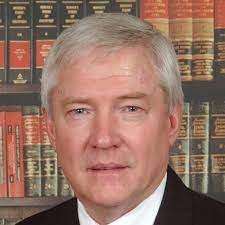
By Jonathan Cook, chair of the African Management Institute
A past colleague and good friend, Conrad Viedge, passed away on Saturday after battling cancer. I was considering writing this column about business ethics, and the two came together rather well.
Conrad was a good man in every sense. Not only did he pay his taxes, which I am sure he did, but when it came to work, friends and family he went beyond compliance to consider what would be best for them.
He had some creative entrepreneurial ventures, but most of Conrad’s career was devoted to teaching – first at Wits Business School and more recently as acting director at the Johannesburg Business School.
We worked on a number of consulting projects together, and I was struck by his asking in each case what the client needed, and how we could solve their problems creatively – even those problems they might not yet have recognised.
Similarly his careful preparation for lectures followed the same theme: what do the students really need to know? How can we help them discover this? I learnt so much from Conrad about teaching technique and even more about responsibility.
He was a very private person and I doubt he ever believed how highly many of us respected him. So I don’t think he did this to gain kudos; rather it was an inner conviction that one had to do the responsible thing in any situation.
What a different world this would be if business and society were routinely conducted with the same inner conviction! That is how it should be.
As one reads of accusations against public figures it is striking that lying is taken for granted. That very sad assumption has been creeping into business. Those outside business circles may be sceptical, but there has been a strong ethic in business to tell the truth to the board and investors, signalling in advance when things may be heading in the wrong direction. Honesty is one’s fiduciary duty, and without it, the economy cannot function effectively.
Professor Deon Rossouw writing in Daily Maverick recently reviewed some interesting research on the standing of ethics in South African business. Compared to other countries South Africa leads the world in adopting written standards of ethics, providing facilities to report unethical conduct confidentially, and advising employees how to behave ethically at work. SA came second in providing training in ethics and in the willingness to report misconduct in one’s organisation. That’s brilliant. No doubt the King Commission must take credit for some of this.
Yet SA also came second in the world for employees feeling pressured to compromise the ethical standards of their organisations, and first for employees feeling that honesty is not practised at work.
Oh dear. So we are good at the formal side of ethics, but poor at living it practically. That brings me back to the example Conrad gave us of honourably doing the right thing, even in little matters. To thrive as an economy and society, we all need to do the right thing, even and maybe especially when no one is noticing – not just complying, but responsibly preparing for a good future.
When you retire, I expect the words that will please you most will not be that you never broke a rule, but that you cared so deeply that you continually sought the common good, whether people were watching or not. Responsible behaviour begins with not breaking rules, but it goes much further to prepare the best for the people and institutions with which we operate.
Most of us are in humble positions without aspirations to save the world, but if we each just lived honourably and responsibly, the culture we create would steer our world in the right direction.
